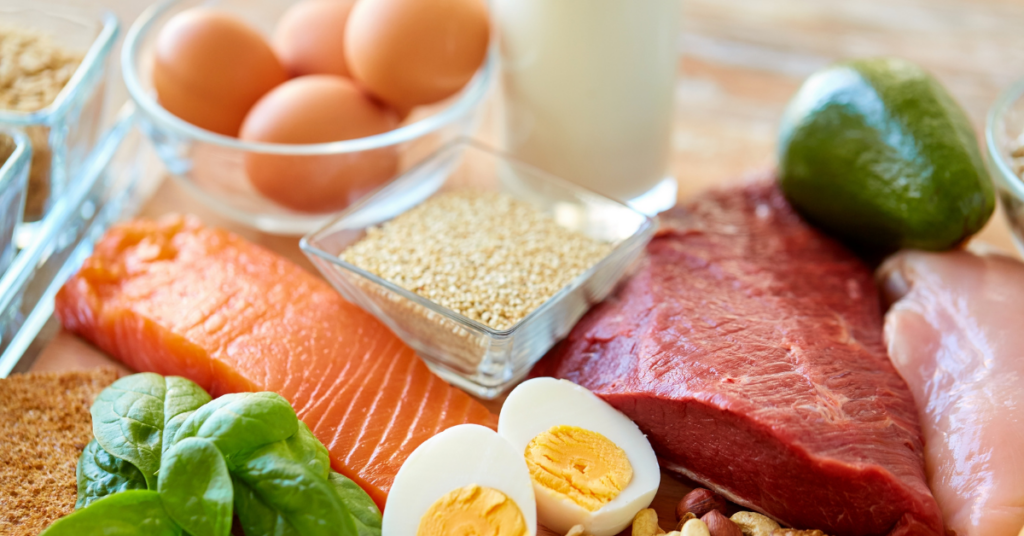When you Google the word “diet” over 1,410,000,000 results show up. That’s a lot of diets. Okay, obviously not all of those are an individual diet. A lot of those results are going to be for blogs (you better be clicking on our blogs) or articles that merely mention the word diet. But a lot of those ARE for different diets out there.
But you know what is curiously absent in that Google search? Amongst all the diet-talk and all of the results that you can scroll through, page after page, there’s no real discussion about the two types of dieting that most people engage in. And you know what stinks? I think talking about those two types of diets is one of the most important things any of us can ever do if we really hope to figure this thing out once and for all.
Okay, hold up. Two types of diet?
This is something I’d like to explain and clear up, and hopefully help you understand the difference between a frustrating fantasy and refreshing reality. See, when I’m talking about two types of diets I’m not talking about the Stronger U way and then some extra secret level to Stronger U that you can only have access to when you’re ready. A lot of people call us a cult, but that would be a bit too cult-like for me.
When I mention these two types of dieting I’m talking about:
- Psychological dieting: A feeling of dieting (effort), absent of results
- Physiological dieting: A result seen in the body from dieting
Now, if you follow me on any sort of social media you know I’ve got a lot of problems with the whole dieting and weight loss industry. There are a lot of ways that I think it doesn’t have your best interests in mind. But one of the ways that I think they’ve failed us all the most is that nobody is having this conversation about the two types of dieting. Even worse, nobody is talking about how these two types of dieting sometimes feel like they go against each other.
Many of us are working hard, planning most of the time, and eating well, but something is holding us back from seeing results, and in a lot of cases, we can’t figure it out. We know many of the usual suspects. You know what I’m talking about. Things like weekends, drinks, liquid calories, tracking errors, mindless snacking, and a few others. Many of these causes are much deeper than we realize and typically aren’t even really discovered or recognized for how they’re impacting us until we start being proactive vs reactive. A topic I think we all agree, could be a whole different blog in itself.
These causes can easily take us from the path that leads towards results and instead sends us down the path that leads to accidental maintenance. In our heads (psychologically) we think “what the heck is going on, I’m dieting (putting in effort) and eating well most of the time but nothing is happening”. We feel like we’re on a diet because we’re working hard most days but our body (physiological) disagrees with our perception.
Because, after all, if we were really in a deficit wouldn’t we see the physical changes? Yes. We would.
Much like a sci-fi movie on time travel, time is an illusion to a dieter, minus the flux capacitor. Time isn’t what matters if we’re talking fat loss. Energy balance does. In other words, just because you did well 5 days out of the week doesn’t mean you’re able to have a mess up on two days and still get the results you want. Remember the carpenter analogy where he builds all week then burns down the house and has to clean up and restart? This is the same.
It takes all of us a little while to learn these lessons, but those two days or a few late-night decisions may have increased your weekly calories from the deficit range where fat loss happens to maintenance, where we stay the same. Seriously, the margins for fat loss might be so slim that all it takes is a couple of less-than-ideal choices and all of the sudden that week is a wash.
This can be incredibly frustrating for someone who’s doing the right thing most of the time because we can’t help but shake that whole idea that we’re actually doing things right. It might even be the reason you came to SU in the first place.
If you’re trying to figure out which type of “dieting” you’re doing, Psychological or physiological, all you have to do is take an objective view on your results. I know this is hard. Believe it or not, I struggle with it too, but if we think about ourselves as someone else watching us, we start uncovering the truth.
The question we need to ask ourselves are things like:
- Do I feel like I’m dieting but nothing is happening? That’s psychological dieting.
- Do I feel like I’m dieting (putting in effort) AND seeing results? If yes, that’s physiological.
Make no mistake, physiological dieting is where we want to be. We’re not in the business of celebrating being miserable or feeling like we’re spinning our wheels for no results. This dieting thing can be downright hard, and we know that. So many people diet and fail because they spend all their time in the psychological version of dieting, not seeing where there might be just a few key areas that they can improve and get themselves into the physiological version of dieting. The one that gets results.
So what can you do to transition from psychological to physiological?
- Look for areas of opportunity (what can you do better)
- Set realistic expectations (maybe you are doing well)
- Don’t fight the science just because it’s uncomfortable
Science is at a point where it moved on from trying to discover how fat loss works because the answer will never change. The strategies to do the things that matter for fat loss, however, are what we have trouble with. This is what makes this fun for us coaches at SU. It isn’t about the what, it’s about the how and I hope this little write up helps.








